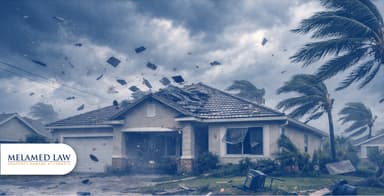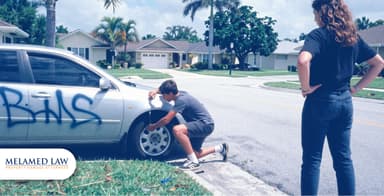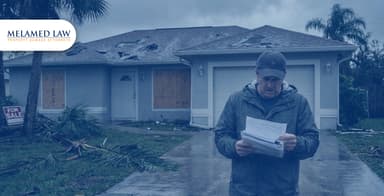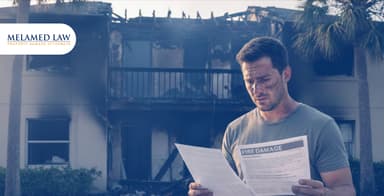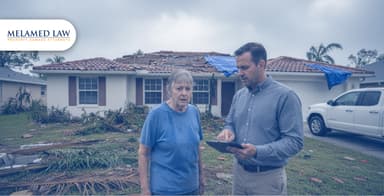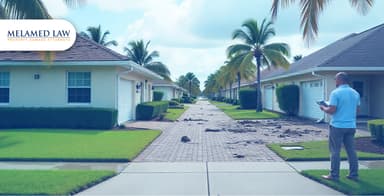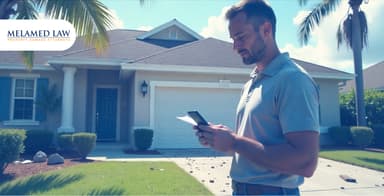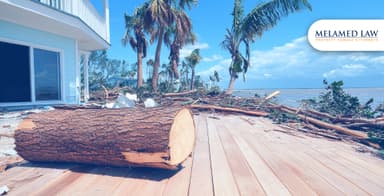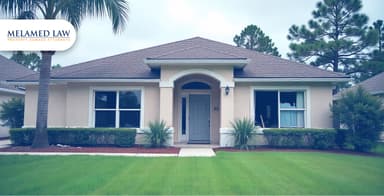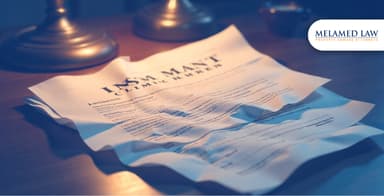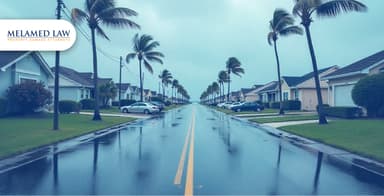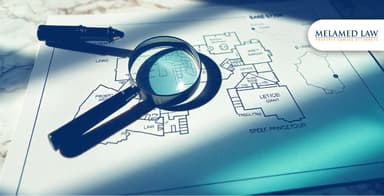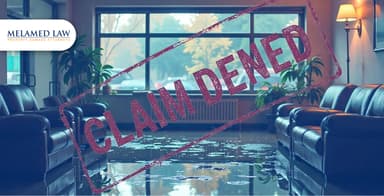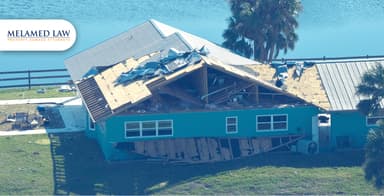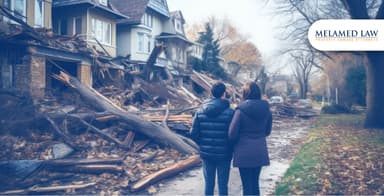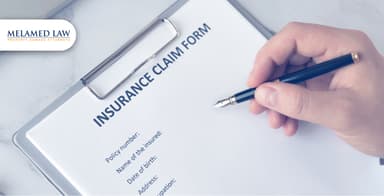
Hurricane Season Preparation: How to Protect Your Property and Handle Insurance Claims
When the unexpected happens, we help individuals and businesses collect the money they deserve for their insurance claims.
Melamed Blogs
June 4, 2025
Hurricane Season Preparation: How to Protect Your Property and Handle Insurance Claims

When a hurricane hits Florida, you prepare the best you can. You board your windows, secure your property, and brace for impact. But long after the winds die and the floodwaters recede, another kind of storm begins—one that’s fought not with sandbags or emergency kits, but with paperwork, policy language, and insurance companies that don’t return your calls.
For many homeowners and business owners across Florida, the most exhausting battle comes after the disaster, when the insurance company they trusted fails to deliver. Delayed payments. Denied claims. Lowball offers that barely cover the cost of materials, let alone repairs.
We’ve seen it all. And we know, every year, hurricane season rolls around with a familiar sense of dread, especially for homeowners living in vulnerable areas. But what if, instead of scrambling at the last minute, you had a solid plan to protect your property and handle insurance claims with confidence?
1) The Hurricane Isn’t the Only Disaster You’ll Face
Hurricanes may pass in hours, but the financial and legal fallout can last for months, sometimes years. In 2022, Hurricane Ian caused over $117 billion in total damages, with at least $60 billion in insured losses reported in Florida alone, making it the third costliest hurricane in U.S. history.
However, what many Floridians don’t see coming is the struggle that follows, not with the weather, but with their insurance company. After Ian, over 473,000 property insurance claims were filed in Florida. A year later,
More than 85,000 of those claims had either been denied or closed without payment, despite clear damage in many cases.
Source: (Florida Office of Insurance Regulation).
The pattern is clear: the second disaster starts when your insurance company begins to push back. It might come in the form of unexplained delays, reduced repair estimates, or vague denials based on "insufficient proof" or “pre-existing damage.” These tactics are common, part of a larger strategy to minimize payouts in high-loss years.
Don’t wait for your claim to be denied before we act. When you have proper legal counsel with you to manage the entire process, you stay secure.
2) Preparation Isn’t Just Physical—It’s Legal

Most Florida property owners prepare for hurricane season with plywood, flashlights, and bottled water. However, very few prepare the one thing that matters most when it’s time to file a claim: proof.
Following Hurricane Ian, countless homeowners across Florida experienced claim denials or low settlement offers not because the damage wasn’t real, but because of insufficient documentation or misunderstood policy exclusions. In a state with such a complex and high-risk insurance landscape, it’s not uncommon for policyholders to find out after the storm that they’re underinsured or, worse, not covered at all for specific types of water or structural damage.
Before You Act, Read This: What are some common mistakes to avoid when filing a property damage claim?
3) The Claim Process Is Designed to Confuse You
Florida law is clear that insurance companies must acknowledge, investigate, and pay or deny a property damage claim within 60 days of receiving notice. Yet in practice, thousands of claims fall into limbo. After Hurricane Ian, more than 40% of all filed claims remained unpaid or unresolved well beyond the legal deadline, according to data from the Florida Department of Financial Services, and many still had no clear path forward a full year after the storm.
Unfortunately, the system is often designed in a way that creates delays. Policyholders find themselves facing a maze of complex forms, unclear deadlines, and ever-changing requests for documentation. One overlooked detail or poorly worded response can cause your claim to be held up for weeks. In some cases, insurers may reopen investigations or assign a new adjuster midway through the process, effectively starting over and leaving you uncertain about the status or progress of your claim.
4) When Insurance Fails, Melamed Law Steps In
You're in a large company if your property insurance claim has been lowballed, delayed, or flat-out denied. We don’t just file claims; we fight for full, fair payment.
Documentation: If an insurance company refuses to value your damage properly, we bring in independent, licensed inspectors and contractors to document the true scope of loss. We challenge lowball estimates with real evidence, backed by professional cost assessments and case law.
Policy reviews: We don’t wait for disaster to strike before taking action. We offer pre-storm legal support, identify hidden exclusions and coverage gaps that could hurt you later. We help clients walk through what needs to be documented and ensure they have legally valid evidence before they ever need to file a claim.
Negotiations: When informal negotiations fail, we escalate—fast. Our attorneys don’t hesitate to file suit when insurers breach their duty to act in good faith. We’ve successfully recovered millions in underpaid and denied claims for both residential and commercial property owners throughout Florida.
You're not just another claim number. And when insurance companies act like you are, we hold them accountable legally, strategically, and without delay.
Your Business Can’t Afford Delays, That’s Why Melamed Law Takes Immediate Action

For Florida business owners, a hurricane doesn’t just damage buildings—it disrupts livelihoods. The impact goes far beyond debris and water damage. Operations stall, revenue dries up, and fixed expenses like rent, payroll, and vendor contracts keep rolling in.
“Nearly 1 in 4 businesses affected by a natural disaster never reopen.”
(Source: Federal Emergency Management Agency (FEMA)
Even for those that do reopen, the timeline to recovery is often dictated less by cleanup crews and more by how the insurance company handles the claim.
Delays in commercial claims are unfortunately common, especially when business interruption coverage is involved. Insurers frequently question whether a shutdown was “absolutely necessary,” undervalue the duration of operational loss, or challenge the pricing of damaged equipment, inventory, or even digital systems. While those disputes drag on, your business bleeds revenue day after day.
We understand that time is revenue. That’s why we prioritize our commercial clients by building strong, well-supported claims from day one. We document and calculate lost profits, gather proof of operational downtime, and push back on any efforts to understate your losses. Whether it’s a restaurant shut down due to structural issues or a logistics center that lost critical inventory and systems, we ensure your numbers hold up in both negotiations and court.
Just as importantly, we fight to protect what many policies overlook—your timeline to reopen. From bringing in independent appraisers to fast-tracking inspections and payment requests, our goal is simple: get your business up and running again, with your income stream intact.
Your recovery shouldn't depend on the tactics of an insurance company. It should depend on the strength of your legal team. Let Melamed Law be that team. Contact us today for a free claim review to rebuild on your terms.
Recent Cases


